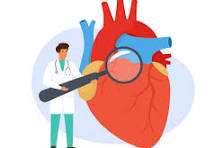Mon-Sat 9am-7pm











A Cardiologist is a medical doctor specializing in diagnosing, treating, and preventing diseases and conditions related to the heart and blood vessels. They manage cardiovascular issues like heart attacks, heart failure, arrhythmias, and more. Cardiologists are highly trained and work in hospitals, private practices, or specialized cardiac centres, focusing on heart health to improve patients' quality of life.

Roles and Responsibilities
The day-to-day responsibilities of a cardiologist include:
Educational Path to Become a Cardiologist
If you are passionate about heart health, enjoy solving complex medical problems, and are willing to commit to years of rigorous education and training, cardiology can be a rewarding career. It requires not only technical expertise but also the emotional intelligence to care for patients with chronic or life-threatening conditions.
Becoming a cardiologist is a prestigious and fulfilling career path, but it requires dedication, resilience, and a long-term commitment to education and patient care. The financial rewards and job satisfaction are high, but students should be prepared for the challenges, including extensive training and a demanding work-life balance. For those who are passionate about heart health and eager to make a difference, cardiology offers a meaningful and impactful career.
By thoroughly understanding the pros, cons, and the skills required, aspiring cardiologists can make an informed decision about pursuing this vital profession.
The role of a cardiologist primarily revolves around diagnosing heart conditions and prescribing treatments, which may include lifestyle changes, medications, or surgical interventions. Cardiologists often work with patients suffering from:
Their work includes performing diagnostic tests like EKGs, stress tests, echocardiograms, and sometimes angiograms to examine the heart's condition. They collaborate with surgeons and other specialists when surgical interventions are needed, such as bypass surgery or stent placement.
| Experience Level | Annual Salary Range (INR) |
| Junior Cardiologists | 20 lakhs – 30 lakhs |
| Mid-Level Cardiologists | 30 lakhs – 50 lakhs |
| Experienced Cardiologists |
|
This range can vary depending on the hospital, location, and whether the cardiologist works in a private or government setting. Cardiologists in metropolitan areas or private practices tend to earn higher salaries.
Cardiology is a high-demand field, with an aging population increasing the need for cardiovascular care. Cardiologists can work in various settings, including:
Becoming a successful cardiologist requires a strong foundation in several areas:
Call us at +91 9205084085, Monday - Friday, 9 am - 7 pm


